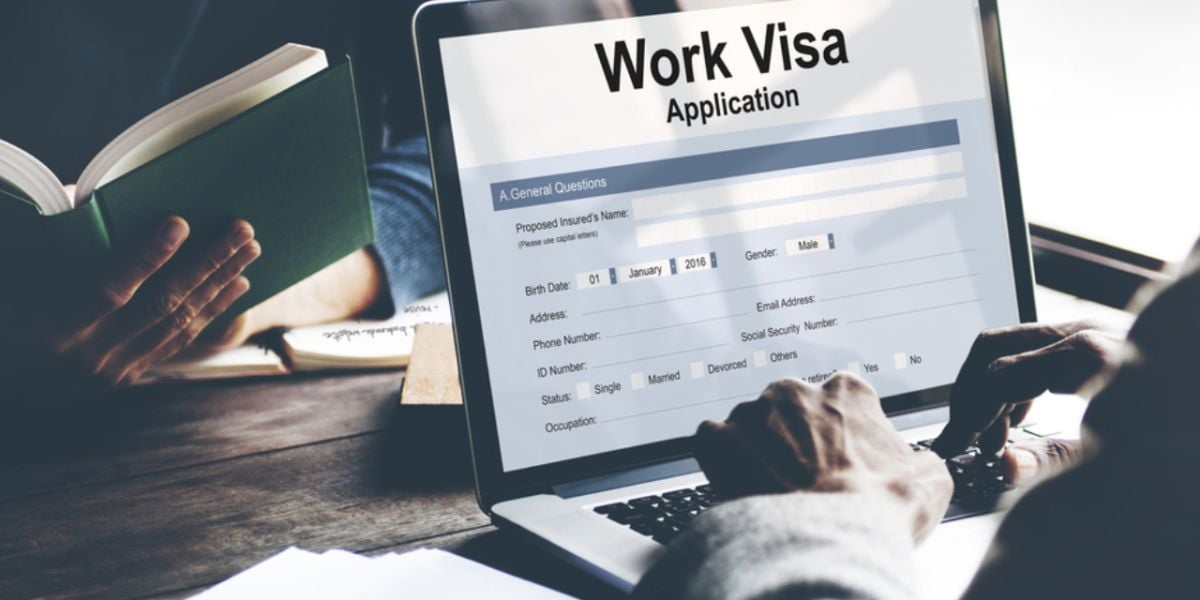
Germany is one of Europe's best countries to develop your career and gain international work experience. Many expats choose Germany because of its low unemployment rates, great healthcare, diverse food, and nice people.
So, if you wish to join the promising German labor market, note that depending on your nationality, different conditions will apply. EU/EEA nationals are eligible to enter or stay in Germany for work purposes without a work visa. In contrast, nationals of other countries must hold a valid work visa to enter Germany for employment. In this article, we will explore the work visa conditions and regulations currently applying to expats-to-be wishing to start their work life in Germany alone or accompanied by family members.
EU and EEA nationals in Germany
To work in Germany, EU and EEA citizens do not need to apply for a work visa to enter or remain in the country as employees. However, there are mandatory administrative procedures to undertake once in the country in order to legalize their status in Germany and distinguish themselves from visitors and tourists. Hence, if you are an EU citizen or a citizen of Iceland, Liechtenstein, Norway, or Switzerland, you need to register with the citizens' office (Bürgeramt) in your area as soon as possible after you arrive in Germany. The registration will include information about your permanent address in Germany (you should provide your lease), marital status, and reason for being in Germany. Once you obtain a copy (Meldebescheinigung) of your original registration certificate (Anmeldebestätigung), other bureaucratic activities such as opening a bank account in Germany, accessing the German healthcare system, and registering with the German tax authorities will run smoother.
Attention:
If you move to a new house or change city within Germany, you must re-register with the citizens' office. In addition, when you leave the country permanently, you will have to give notice of departure at the local citizens' office (Abmeldung). This is an essential and mandatory step, as failing to de-register may result in high fees.
Useful link:
Citizens' registration offices in Berlin
Non-EU and non-EEA nationals in Germany
To move to Germany for work, non-European citizens must first receive a job offer from a recognized employer in Germany and then apply for a work visa at the German embassy or consulate in their home country before entering Germany. Nationals of Australia, Canada, Israel, Japan, New Zealand, South Korea, and the United States may enter Germany without a visa for up to 90 days on a valid passport and apply for a work residence permit after arrival in Germany at the local Foreigners' Registration Office.
Attention:
Not all residence permits allow labor market activities, meaning that having a residence permit is not, by default, sufficient to commence employment in Germany.
To prepare your work visa application for Germany, you should contact the German consulate or embassy in your home country after you have obtained a job offer or contract from a German employer and have consulted with them about the visa procedures. The most common documents that you will have to submit for your work visa are a signed employment contract, university degrees and other qualifications, a bank statement, a health insurance plan, and, of course, the visa application form as per the embassy or consulate's guidance.
Good to know:
To increase your chances of a successful visa application, your future employer can compose a letter arguing that you are the best candidate for the job you have been offered and there's a lack of your skills among German citizens.
The time for a work visa application processing can be anything between one to three months, depending on the efficiency and workload of your home country's German consulate or embassy. Therefore, as it is your responsibility to organize your visa application and not your employer's, you should start the process as soon as possible and keep your employer in Germany up to date with the progress of your application. Since you meet the visa requirements and your visa is issued, it will be valid for the duration of your employment contract. Yet, it is possible to renew your visa as many times as your contract.
Important:
Your visa will be your pass to obtain the temporary residence permit (Aufenthaltserlaubnis) for employment purposes, a document issued by the Federal Employment Agency, allowing you to start work.
Useful links:
German embassies and consulates abroad
List of visa-exempt countries for an entry of up to 90 days
Transfer foreign educational qualifications in the German education system
Working Holiday Visa for Germany
Nationals of Australia, Japan, New Zealand, the Republic of Korea, Taiwan, Hong Kong, Israel, Chile, and Brazil, aged between 18 and 30, can stay in Germany for up to one year on the grounds of experiencing the culture and daily life in Germany while undertaking holiday jobs to support themselves. Visa requirements, conditions, restrictions, minimum age, length of stay, and fees may vary according to your country of origin. In general, it is necessary to be the holder of a valid passport issued in one of the countries mentioned above; have sufficient financial guarantees to sustain oneself in the country; have return tickets; have a minimum study level, and some knowledge of German (except if the purpose of the stay is to take German classes). The application must be filed in a German embassy or consulate abroad. For more information about the WHV in Germany, contact the German embassy or consulate in your area.
Useful link:
Working Holiday Visa (Auswärtiges Amt)
Other work avenues for Germany
The job seeker visa allows nationals to stay in Germany for up to 6 months, a period in which they can search for a job and apply for it directly from Germany. The main requirements for this visa are having a recognized education, which can be confirmed in the Anabin database (please see useful links below), more than five years of work experience, proof of sufficient funds for this period, and medical insurance.
The EU Blue Card is designed to attract highly qualified third-country nationals to occupations with a shortage of qualified personnel, such as doctors, engineers, natural scientists, mathematicians, and IT specialists. Applicants for the EU Blue Card must be able to show proof of a university degree and a job offer, which entitles them to annual earnings of at least 45,300 euros (or 41,041.80 euros if there's a severe shortage of skills in the specific field). Often, the EU Blue Card leads to long-term stays in Germany and even permanent settlements in the country.
Attention:
Third-country nationals eligible for the EU Blue Card must still apply for a work visa to enter Germany. Once they arrive in Germany, they will have to visit the local Foreigners' Registration Office to begin the issuing process of the EU Blue Card.
Important:
EU Blue Card holders are eligible for a settlement permit after 33 months of residence or 21 months if they can prove they have good German language skills (B1).
The intra-corporate transfer (ICT) is a card issued by EU member states (including Germany) to skilled employees (e.g., managers, specialists, and trainees) who work in a company's office outside of the EU but are invited to join the company's EU branch. The German ICT card is a non-permanent residence permit valid for a maximum of 3 years or one year for lower positions (e.g., trainees). Some of the most important requirements to qualify for the ICT card are:
- being a company employee for at least 6 months;
- transferring to Germany for at least 90 days;
- arriving in Germany as a manager, specialist, or trainee;
- holding evidence of professional qualifications, a valid contract of employment, and the approval of the Federal Employment Agency.
Attention:
Regardless of whether you qualify for the ICT card, a valid German visa is needed for non-EU and EEA nationals to enter Germany.
Useful link:
Transfer foreign educational qualifications in the German education system
The new Opportunity Card
As of June 2024, candidates from non-EU countries will be able to apply for the Opportunity Card (Chancenkarte), which means they can enter Germany to look for a job without the lengthy visa application process, but you do have to have at least 2 years of vocational training or a university degree and a basic level of German (A1) and English (B2).
Those with an Opportunity Card will be able to take a two-week trial job or work for up to 20 hours per week, and they're allowed to stay in Germany for up to a year (although this can be extended).
The application process is based on the points system, with applicants having to have 6 points to be successful (you can find out more about this on the Chancekarte website). Applicants will also have to prove that they have sufficient funds to maintain themselves while looking for a job or working part-time.
Although applications don't open until later in the year, it's a good idea to do your research now and gather all the information you'll need. There are likely to be a lot of people applying, and you want to make sure your application is complete before you submit it!
Entering the German labour market
Obtaining a German work visa and residence for foreign nationals is not a simple process. According to the European Union regulations, the Federal Employment Agency (Budesagentur für Arbeit) needs to approve that a German or European citizen cannot fill a specific work position so it can be allocated to an expat – of course, this changes a little with the Opportunity Card. This process requires the employer to post an advertisement listing the specific requirements for that job and check the register for unemployed people in that area. An employer determined to get a specific worker can bypass this procedure by explaining the specific skills that his preferred worker has, checking the minimum pay requirements, and posting a narrow advertisement that requires knowledge that cannot be easily substituted.
We do our best to provide accurate and up to date information. However, if you have noticed any inaccuracies in this article, please let us know in the comments section below.








